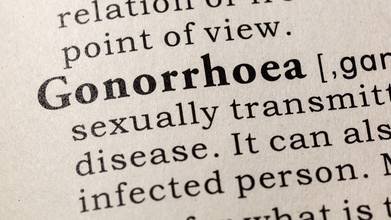- Health Conditions A-Z
- Health & Wellness
- Nutrition
- Fitness
- Health News
- Ayurveda
- Videos
- Medicine A-Z
- Parenting
Half A Million People Die Of Tobacco Use, But Some Are More At Risk

Credits: Canva
The US Surgeon General Vivek H Murthy released a report on tobacco-related disease and death, addressing health disparities. "Tobacco use imposes a heavy toll on families across generations. Now is the time to accelerate our efforts to create a world in which zero lives are harmed by or lost to tobacco,” he said.
As per the report, "Smoking has declined more than 70% in the United States since 1965. However, progress achieved through improvements in tobacco-related policies, regulations, programs, research, clinical care, and other areas, has not resulted in the same outcomes across all U.S. population groups."
The HHS Secretary for Health Xavier Bacerra said that tobacco use continues to decline, however it still remains the leading cause of preventable death in the United States. He also reflected on the fact that progress is still not across all populations and communities.
What Can Smoking Do To You?
As per Dr Mickey Mehta, also associated with prominent hospitals and organizations, including Jaslok Hospital, Asian Cancer Institute, and Tata Memorial, "Smoking rapidly increases insulin resistance; a primary characteristic feature of the disease type 2 diabetes. Nicotine and other chemicals in cigarette smoke impair the body's capacity to utilize its own insulin appropriately. Eventually, that makes it difficult to regulate blood sugar level by causing hyperglycemia (high blood sugar), one among the most common side effects of diabetes."
How Does It Affect You?
Your lung contains around 500 million tiny air sacks, known as alveoli that pull oxygen from the air when you breathe and releases carbon dioxide when you exhale. Smoking destroys these air sacks by killing the cells that line them, thus causing your lung to damage, overtime.
Lung cancer is also the most common cancer worldwide and claims around 1.8 million lives each year. The study also mentioned that by reducing smoking rates to 5% by 2050, it could extend life expectancy by one year for men and 0.2 years for women. It could actually lead to saving 876 million years of life, if the number of men and women is combined.
Murthy also pointed out that nearly half a million people each year lose their life due to smoking and secondhand smoke, also known as passive smoking.
What Is Passive Smoking And How Can It Affect You?
Passive smoking occurs when a non-smoker inhales smoke released by someone else's tobacco product, such as a cigarette or cigar. This exposure is harmful because the smoke contains over 7,000 chemicals, of which at least 70 are known carcinogens.
The toxic chemicals in tobacco smoke can cause genetic mutations in lung cells, leading to cancer. Passive smoke contains the same cancer-causing agents as directly inhaled smoke. When non-smokers are repeatedly exposed, these harmful substances accumulate in the lungs, damaging cells and causing inflammation. Prolonged exposure to secondhand smoke can weaken the respiratory system, which leads to conditions where cancer is more likely to develop. Research shows that non-smokers regularly exposed to smoke are as likely to develop lung cancer as smokers who smoke about one to two cigarettes daily.
Is Self-Cooling Fabric A Dream Come True? Scientists' New Invention Could Beat The Heat Soon

Credits: Representational image from Canva; University of Alabama
Summers are approaching and what would be better than having your own clothes that keep you cool? Scientists at the University of Alabama at Birmingham in the United States are working on innovations and have also applied for a patent. The research team led by Dr Vinoy Thomas, who is a native of Valakam in Kottarakkara. The findings have been published in the journal of the American Chemical Society.
What Is The New Finding Of Self-Cooling Fabric?
The researchers did not create a brand-new cooling fabric. Instead, they introduced a technique that transforms regular textiles into heat-regulating materials. This is done using two processes: electrospinning and plasma surface modification.
The first technique allows boron nitride nanoparticles to be evenly spread across the surface of the fabric. The second method uses low-temperature plasma (LTP) treatment to embed silicon oxide nanoparticles into the stitching threads.
Both boron nitride and silicon oxide are known for their heat-resistant qualities. By combining these two methods, researchers have created a coating that significantly lowers heat. The nanoparticles act as an added protective layer on the fabric.
Testing showed that the coating remains effective even after five to eight washes and does not affect the fabric’s original properties. Although its performance gradually decreases with repeated washing, researchers suggest applying a double-layer surface coating to improve durability.
Commercial production is expected to start once the patent is approved. In experiments, the coated garments reduced an external temperature of 35°C by 15°C, lowering it to 20°C. According to the researchers, this technique can be applied to any type of fabric.
Unlike earlier studies that focused on inventing entirely new heat-resistant materials, this innovation modifies existing fabrics. The study states that this approach is more efficient and cost-effective than current technologies.
The research team also includes Dr Ranjith Rajanpillai, Dr Kannadasan Appavu, Dr Claudiu T Lungu, and Dr Sanjay K Behura from the Department of Mechanical and Materials Engineering.
Innovations For Sizzling Summers

In Japan, something similar happened when former Sony engineer Hiroshi Ichigaya came up with kuchofuku or "fan jackets". This garment has a built-in feature, powered by battery, which is a fan at the lower back. This helps the circulation of air and to evaporate sweat and cool workers. These jackets are commonly used by construction workers, delivery partners, and people working in factory to combat extreme heat.
Meningococcal B Vaccine Ineffective In Preventing Gonorrhea In Gay And Bisexual Men: Study

Credit: Canva
The meningococcal B vaccine (4CMenB) is completely ineffective in preventing gonorrhea -- a sexually transmitted infection (STI) --, especially among high-risk groups like gay and bisexual men, according to the results of the world’s largest randomized control trial (RCT).
Gonorrhea is a common bacterial STI caused by the bacterium Neisseria gonorrheae, and is transmitted through unprotected sex.
Even as antimicrobial resistance in gonorrhea has increased rapidly in recent years, Australian researchers explored the efficacy of 4CMenB against the disease.
The large randomized, placebo-controlled trial involving 587 gay and bisexual men showed that the risk of gonorrhea incidence remains essentially the same even after vaccination.
“Across both arms, the gonorrhea incidence was virtually the same -- at around 48 per cent per year, indicating very clearly that the vaccine had no effect on preventing gonorrhea,” said Professor Kate Seib, from Griffith University, in Australia, who led the trial.
In light of the study, the researchers stressed the need to explore other options to combat gonorrhea, such as condoms and regular testing.
The 4CMenB Vaccine
While meningococcal disease (caused by Neisseria meningitidis) and gonorrhea (caused by Neisseria gonorrhoeae) are distinct infections, both are caused by Neisseria bacteria, which share 80-90 percent genetic material.
The bacterium N. meningitidis primarily causes meningitis and septicemia, and observational studies have shown that meningococcal B (MenB) vaccines such as the 4CMenB offer 33-40 percent cross-protection against gonorrhea.
However, the latest study, presented at the Conference on Retroviruses and Opportunistic Infections in Denver, US, found no protection against gonorrhea.
The study “provides strong evidence that the 4CMenB meningococcal vaccine is not effective at preventing gonorrhea in gay and bisexual men who are at high risk of contracting it,” Seib said.
According to the US National Institute of Health, the 4CMenB vaccine is a highly effective, protein-based vaccine designed to protect against invasive meningococcal disease (IMD) serogroup B.
Approved in over 50 countries, it offers 71-95 percent effectiveness in infants and 100 percent in adolescents.
What Is Gonorrhea
Gonorrhea is a common STI, and sexually active people of any age can get the disease and pass it on to partners, and even to their baby during childbirth.
Gonorrhea is the second most common STI caused by bacteria, just behind chlamydia.
As per data from the World Health Organization (WHO), in 2020, there were an estimated 82.4 million new infections among adults globally.
The NIH noted that nearly 1 million new gonorrhea infections occur in the United States every year. About half of these infections occur in people ages 15 to 24.
The symptoms of Gonorrhea in men include:
- White, yellow, or green discharge from the penis
- Pain or burning (possibly severe) when peeing
- Testicular pain and swollen testicles.
Notably, the condition also occurs in women, but up to 50 percent of them won’t experience symptoms. This increases the risk of spread to other partners.
- Common symptoms in women include:
- Unusual vaginal discharge (white or yellow).
- Pain in your lower abdomen or pelvis.
- Pain during sexual intercourse
- Pain when you pee
- Bleeding between periods
Cutting Back on Sugary Drinks Can Improve Teen Anxiety

Credit: Canva
A new study suggests that drinking sugary drinks can increase anxiety, among other mental issues, in adolescents by 34 percent.
Sugary drinks are known to be more harmful due to their low fiber, protein, or fat, which typically slow down digestion in solid foods. This means liquid sugar gets into your bloodstream very quickly, causing a sudden jump in blood sugar and insulin levels.
Hyper-fast intake of such drinks can also make it hard for your liver to process the sugar, especially the fructose part. n large amounts, fructose turns into fat in your liver. This buildup of fat is linked to metabolic problems that lead to Type 2 diabetes.
Apart from this, a Bournemouth University, UK literature review analyzed people aged between ten and 19 who drank fizzy drinks, colas, sweetened fruit juices, sweetened milk drinks, energy drinks, and sweetened tea or coffee and found multiple links between the beverages and anxiety diagnosis.
The gut-brain axis — the connection between the brain and the gut — may help explain the link between sugary drinks and anxiety. But gut health is influenced by many factors, including diet, stress, and sleep, which are also linked to anxiety.
Overall, the study suggests that cutting back on sugary drinks could help support teenagers’ mental health. While many studies have looked at how reducing sugary drinks improves physical health, more research is needed to see if it also benefits mental health.
READ MORE: Smoking Cannabis Can Lead To Mental Illnesses In Teenagers, Study Finds
WHO Asks Countries To Tax Sugary Drinks
The World Health Organization is asking countries across the world to increase taxes on sugary drinks and alcohol to reduce cases of chronic conditions such as Type 2 diabetes, obesity, heart disease and fatty liver.
In a January 13 virtual conference, WHO Director-General Dr Tedros Adhanom Ghebreyesus said: "Health taxes have been shown to reduce consumption of these harmful products, helping to prevent disease and reduce the burden on health systems.
"At the same time, they generate an income stream that governments can use to invest in health, education and social protection."
According to a recent report on sugar-sweetened beverages taxes, at least 116 countries tax sugary drinks, including sodas or carbonated canned drinks, but other high-sugar products, such as 100 per cent fruit juices, sweetened milk drinks and ready-to-drink coffees and teas, escape taxation.
Additionally, another report on alcohol taxes shows that even though 167 countries levy taxes on liquor, wine and beer, alcohol has become more affordable or remained unchanged in price in most countries since 2022, as taxes do not get adjusted for inflation and income growth.
How To Cut Back On Sugary Drinks?
Sugary drinks can feel addictive. If you find yourself hooked, try to slowly reduce how much you drink, just like you would with alcohol or tobacco. It helps to plan ahead for when you usually crave a soda.
You can start by mixing plain sparkling water with an equal amount of fruit juice or soda. Then, week by week, slowly reduce the amount of the sugary drink until you're mostly just drinking sparkling water. If it helps, add a little lemon or lime juice for flavor.
© 2024 Bennett, Coleman & Company Limited

